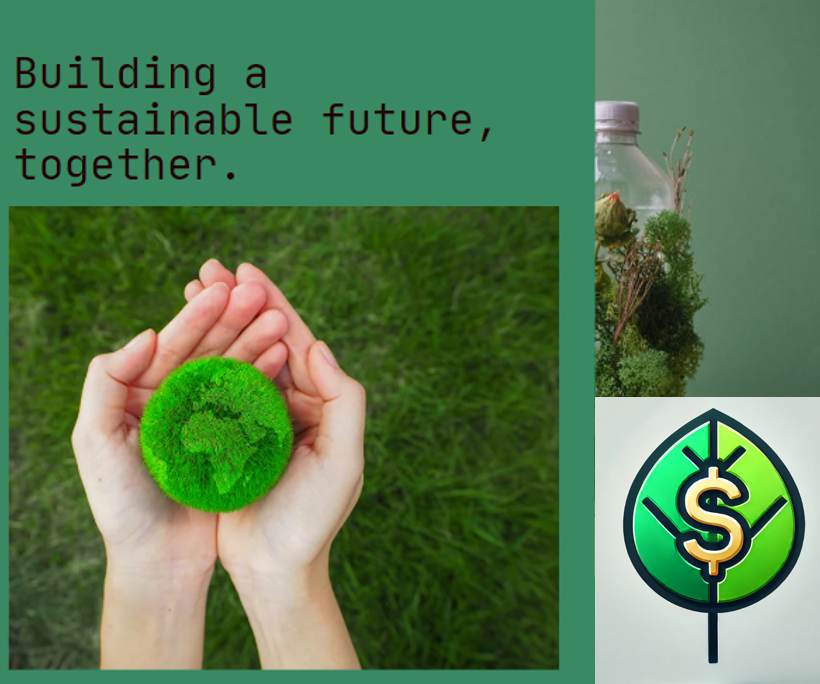What difference can this make to your business?
In today’s dynamic and competitive business environment, sustainability has evolved from a niche concept to a critical strategy for long-term success. For small and medium-sized enterprises (SMEs) especially those in the building products industry, sustainability offers a transformative framework that balances these three essential pillars – People, Profits, and Planet.
Adaleen Griffith, a seasoned expert with over 30 years in the building products sector, summarises the importance of this approach:
“Sustainability isn’t just about ticking boxes—it’s about creating a strategy that works for your business. The right approach will save you money, increase your market value, and empower your team. The key is starting with achievable goals and scaling as you see the benefits.”
This perspective emphasises that sustainability isn’t a one-dimensional effort. To thrive, businesses must integrate environmental stewardship, financial performance, and a commitment to people—including employees, customers, and communities—into their core strategies.
Why does Sustainability Matter?
Employees, customers, suppliers, and community members are at the heart of a successful business. Companies that prioritise employee well-being foster a culture of engagement and productivity. Offering flexible work arrangements, professional development opportunities, and wellness programs enhances job satisfaction and retention and this all leads to better productivity.
Similarly, businesses that connect with customers and suppliers on shared values respond to market needs and changes better while building trust and loyalty. Community involvement through initiatives like diversity, inclusion, and local partnerships strengthens a company’s reputation and aligns its goals with broader societal benefits.
Griffith recalls her experience building relationships in the concrete industry:
“When we owned our first business, Jagas, we learned that investing in people—our team and our community—created a ripple effect. It improved our operations, expanded our customer base, and deepened our connection to the industry.”
But probably more interesting to business owners is that fact that Sustainability done well isn’t just good for the planet—it’s also good for the bottom line. Businesses with clear sustainability goals and a good strategy should see higher profit margins and stronger financial performance. Customers today are often willing to pay a premium for products and services from companies that align with their values; however, even without this, improvements in productivity and waste reduction can still boost profit margins.
Proactively addressing environmental regulations and adopting eco-friendly practices reduces risks, improves operational efficiencies, and avoids costly penalties. For instance, businesses that reduce waste or switch to sustainable materials can achieve significant cost savings while enhancing their competitive advantage.
Environmental responsibility is a cornerstone of sustainability. By reducing carbon footprints, conserving resources, and adopting green technologies, businesses contribute to a healthier planet while meeting the growing demand for eco-conscious products.
Griffith underscores the importance of starting small and scaling efforts:
“Businesses don’t have to overhaul everything at once. Simple steps, like sourcing sustainable materials or implementing energy-saving practices, can have a big impact. The key is consistency and measurable progress.”
Practical Steps to Align with the Three Pillars
Building a strategy around people, profits, and planet doesn’t have to be overwhelming. Here are actionable steps to get started:
- Master Cash Flow: Financial health is the foundation of sustainability. Monitor inflows and outflows diligently to fund growth initiatives, such as employee programs or eco-friendly investments.
- Stay Compliant: Meet government standards and regulatory requirements to avoid costly penalties and maintain operational integrity.
- Invest in People: Happy employees are more productive. Offer professional development opportunities, wellness programs, and flexible work arrangements to foster engagement and retention. Appoint a sustainability champion within your organisation and empower them to lead efforts.
- Collaborate with Stakeholders: Engage with customers, suppliers, and community members to co-create solutions that drive innovation and trust.
- Start Small: Begin with quick wins, like reducing waste, conserving energy, or introducing recycling programs. These steps save costs and demonstrate commitment to the environment. Use wins to build momentum and scale up.
- Measure and Report Progress: Use key metrics to track performance across the three pillars. Transparency in reporting builds credibility and helps identify areas for improvement.
The Risks of Neglecting Sustainability
Ignoring sustainability is no longer a viable option for businesses. Challenges such as greenwashing, overpriced certifications, and complex compliance requirements can damage reputations and erode trust. Without clear and authentic strategies, businesses risk falling behind competitors who are proactively meeting the demands of today’s conscious consumers and regulatory frameworks.
The Power of Purposeful Leadership
Leadership plays a pivotal role in driving sustainability. By creating an inspiring vision and empowering their teams, business leaders can unite their organisations around the three pillars. Griffith’s philosophy underscores this:
“Differences between groups, goals, or priorities shouldn’t lead to conflict but instead be seen as opportunities to recalibrate thinking and expand knowledge. Sustainability allows us to align those differences toward shared growth and better futures.”
This inclusive mindset recognises that sustainability is not just about policies or procedures – it’s about people working together toward common goals.
Future-Proofing Through Sustainability
For SMEs in the building products industry, embracing sustainability through the lens of people, profits, and planet isn’t just about surviving—it’s about thriving. A thoughtful strategy that balances these three pillars creates resilient businesses, engaged communities, and a healthier planet. Organisations such as B Lab offer a framework and certification to help you achieve your goals and be recognised for it.
As Griffith advises:
“Sustainability is about creating value at every level—within your team, your business, and the world around you. The time to act is now.”
By focusing on achievable goals, leveraging expert guidance, and committing to progress, businesses can secure their place in a more sustainable and prosperous future.
Adaleen is offering a free one-hour strategy session to help you uncover how a tailored sustainability plan can drive growth, reduce costs, and future-proof your business. Don’t miss this opportunity to transform challenges into opportunities—book your session today!


